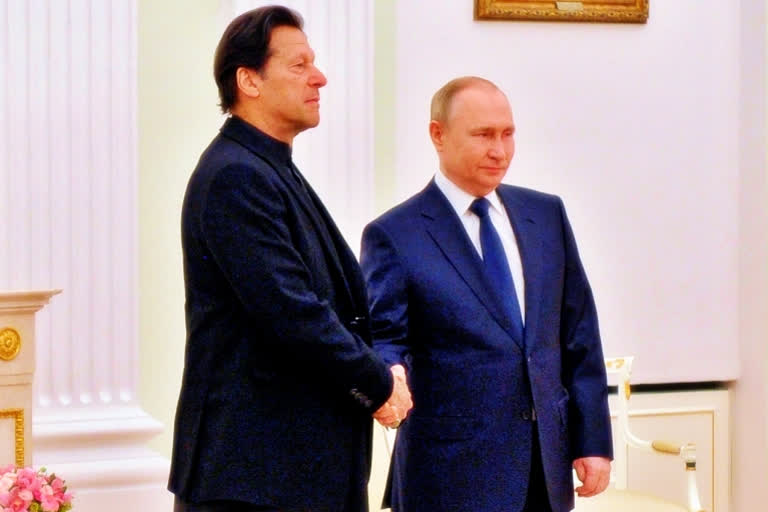New Delhi: Pakistan has become the first country to officially sign a huge trade deal with Russia at a time when Moscow has come under severe criticism for invading Ukraine. As part of the agreement, Pakistan will import two million tonnes of wheat and natural gas from Russia. Will this impact Pakistan's assistance from the International Monetary Fund (IMF)?
Not only have the US and European Union thrashed out stringent sanctions against Russia, the World Bank and the IMF, too, have issued a joint statement condemning Moscow while promising to provide assistance to Ukraine and other countries that have opened their doors to Ukrainian refugees. Notably, Pakistan is now seeking a bailout package from the IMF, which approved disbursement of $1 billion under its $6 billion loan programme. However, the Imran Khan government is desperately seeking a larger portion of loan from the IMF to support its sagging economy.
Watch: Imran tours Russia as Putin wages war on Ukraine
Pakistan's dependence on IMF assistance has risen in the last few years with the growing external debt. This year, Islamabad's gross external financing requirement is estimated at around $30 billion. In a joint statement, the IMF and World Bank called for coordinated international action to mitigate risks and navigate the treacherous period ahead as the Russia-Ukraine crisis intensified. Pakistan Prime Minister Imran Khan's visit to Russia on the eve of the Ukraine attack has already come under scrutiny.
Khan met Russian President Vladimir Putin on February 24 to discuss ways to expand bilateral relations. "This visit could not possibly have created a good image of Pakistan in the international community. Pakistan is, after all, heavily dependent on the financial aid of Western countries and their monetary institutions like the IMF and the World Bank," the News International said in a report. While Russia has 2.59 per cent of the total votes at the IMF, the US has 16.40 per cent.
Also read: Pakistan, IMF fail to agree on MEFP under USD 6 billion Extended Fund Facility
The UK has 4.03 per cent and Germany 5.31 per cent. China has 6.08 per cent. Notably, China, an ally of Russia has also opted to remain cautious while maintaining neutrality.
Khan has justified his meeting with Putin, saying that the agreements will support import of natural gas, which is the need of the hour amid Pakistan's depleting reserves. Immediately after the Khan-Putin meeting, a Rs 9.69 billion fine was slapped on National Bank of Pakistan's New York branch by the US regulatory authorities for charges relating to non-compliance and anti-money laundering violations. "One hopes that Pakistan's people do not pay too heavy a price for the indiscretion of its leaders," the Pakistan-based news organisation said.
(IANS -The content is being carried under an arrangement with indianarrative.com)



